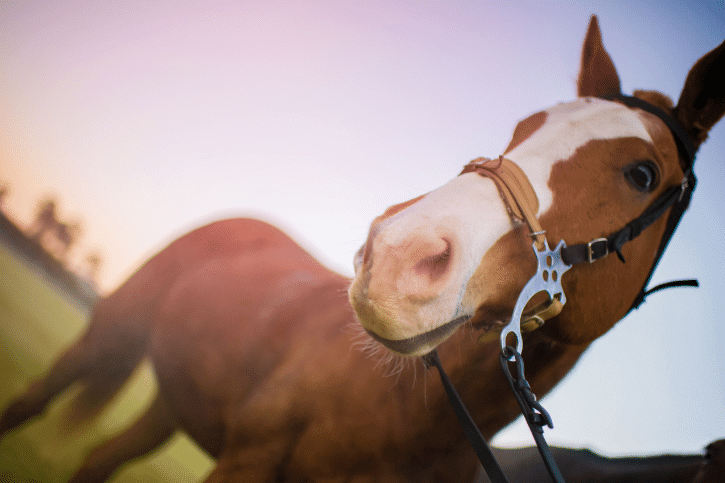Can Horses Sense Fear?
I was taking my son out for his first ride the other day.
He was having a bit of trouble climbing up, and he was getting a bit nervous.
I thought this might happen, so I took the opportunity to use it as a learning experience.
I told him to look at how the horse was reacting.
How it seemed to be becoming increasingly uncomfortable and twitchy.
The horse can sense your fear, I told him.
My son asked, later, if that was really literally true, so I did some research to fully answer the question.
So, can horses sense fear?
In a very literal sense, horses can sense fear, as well as certain other emotions. They are not telepathic, but they are highly observant of your behavior. On top of this, they can literally smell chemicals you give off when feeling fear, often released through sweat.
You do need to take the idea with a certain grain of salt.
Again, horses do not have some kind of special, extra sensory ability to sense fear.
They are just very sensitive to it through their ordinary senses. So, why are horses so sensitive in this way?
Well, let’s look into it.
Can a horse tell if you’re nervous?
The simple answer is yes.
There’s no supernatural or psychic mechanism at play; it’s simply evolution.
Horses are highly sensitive to a number of indicators about a human’s state of being, and there are a lot of ways they can tell.
As I mentioned, one of the most clinical and quantifiable are these chemosignals which our bodies give off when we experience fear.
It has been shown that horses behave in strange ways when being ridden by a nervous person, and are more comfortable when the rider is happy.
One study has demonstrated how horses are sensitive to these chemosignals, and can essentially tell the difference between a happy and a nervous human.
There are other ways they can sense the fear.
If, for example, you spend a lot of time trying to climb up, the horse will begin to feel uncertain and mirror your own nervousness.
As far as the empirical data goes, though, it seems that the primary mechanism by which horses sense fear and uncertainty is through the smells.
So why do horses have this ability?
It’s not entirely clear, but there are a few useful theories.
Why can horses sense your fear?
The simple answer is evolution.
Though we aren’t closely related to horses, necessarily, when you look at the entire plethora of varied life on Earth, we’re much closer to horses than most living things.
We are both mammals, for one.
Horses are herd animals, and in the wild they are very rarely alone.
Safety in numbers is the key.
But it’s no good to just have lots of animals together—that doesn’t keep predators away.
If anything, it attracts more.
So, the safety in numbers comes from an ability to communicate, and understand emotional signals.
For example, if something is making one horse in the herd nervous, then the rest are likely to follow suit.
They will pay attention to whatever the first horse was paying attention to, and as a whole, they are likely to be able to determine if there’s a real threat or not.
These basic tells translate quite well to horses being able to understand our own fear, too.
The chemosignals are obviously the main thing, but our body language is also highly indicative of how we feel.
Where our eyes fall, how we stand, horses can instinctively interpret these actions, to an extent.
The ability to interpret fear isn’t unique to horses, either; we have it too.
Except that the means by which we do it doesn’t always translate well to other animals.
We primarily do it through interpreting facial expressions.
It’s very easy to read fear on a person’s face.
Can horses sense a good person?
Again, horses do not have any kind of special sixth sense.
They aren’t telepathic.
However, by the same means that they can have a good idea of how afraid someone is by their smell, they can also sense a happier person.
The study which determined that horses sense through chemosignals did so by taking sweat from volunteers, some of whom were watching scary movies, and some were watching fun or happy movies.
To put it simply, the horses had a normal, positive, expected reaction to the happy sweat and unexpected and nervous reactions to the scared sweat.
So, no, horses cannot sense a ‘good’ person.
They have no concept of goodness.
They can, however, tell the fundamental difference between happiness and fear.
So, again, the important point to stress is that horses do not have any kind of superpower.
They are simply highly social creatures who, in the wild, constantly rely on judging and interpreting the behaviors of other members of their herd.
Herd mentality is one of the best ways to protect yourself against predators, by creating essentially a network of alarms.
For horses to be able to survive well in the wild, they need to be sensitive in this way.
